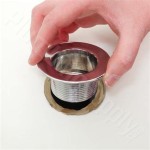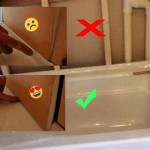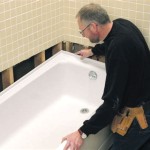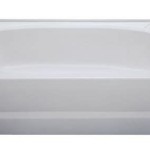Walk-In Showers: A Comprehensive Guide to Replacing Your Bathtub
Transforming your outdated bathtub into a modern walk-in shower can significantly enhance the functionality, accessibility, and aesthetic appeal of your bathroom. However, embarking on such a project requires careful consideration of various aspects. This article delves into the essential elements you need to know before replacing your bathtub with a walk-in shower.
Benefits of Walk-In Showers
Walk-in showers offer numerous advantages over traditional bathtubs, including:
- Enhanced accessibility: Stepping into and out of a walk-in shower is effortless, making it ideal for individuals with mobility challenges or seniors.
- Increased safety: Walk-in showers eliminate the risk of slips and falls associated with bathtub edges.
- Larger showering area: Walk-in showers provide ample space to move around and enjoy a more comfortable showering experience.
Planning and Considerations
Before you begin the replacement process, it's crucial to:
- Determine the shower size and shape: Measure the available space and decide on the optimal size and configuration for your walk-in shower.
- Choose suitable materials: Select durable and waterproof materials such as tile, acrylic, or fiberglass for the shower floor and walls.
- Plan for drainage: Ensure proper drainage by installing a sloped floor with a drain positioned at the lowest point.
- Consider additional features: Think about incorporating amenities such as grab bars, built-in shelves, or a shower seat for enhanced functionality.
Steps Involved in Replacing the Bathtub
Replacing a bathtub with a walk-in shower typically involves the following steps:
- Remove the bathtub: Detach the bathtub from its plumbing and carefully remove it from the bathroom.
- Install the shower pan: Place the shower pan, which serves as the waterproof base, over the subfloor.
- Assemble the shower walls: Install the prefabricated shower walls or construct them using waterproof panels.
- Install the shower fixtures: Mount the showerhead, fixtures, and any additional features such as a handheld sprayer or body jets.
- Finish and seal the shower: Grout the tile joints, caulk around the edges, and seal the shower floor and walls to ensure water resistance.
Maintenance and Care
To ensure the longevity of your walk-in shower, regular cleaning and maintenance are essential:
- Clean regularly: Use a mild bathroom cleaner and wipe down the shower surfaces after each use.
- Check for leaks: Inspect the shower walls, fixtures, and drain for any signs of leakage and address them promptly.
- Caulk and seal: Re-caulk and seal the shower as needed to maintain water resistance and prevent mold growth.
Conclusion
Replacing your bathtub with a walk-in shower can significantly enhance the safety, accessibility, and enjoyment of your bathroom. By carefully planning, choosing suitable materials, following the appropriate steps, and maintaining the shower regularly, you can create a modern and functional showering experience that meets your needs and preferences.

Can You Replace A Tub With Walk In Shower Bath Doctor

The Pros And Cons Of Converting A Standard Tub Into Walk In Shower Naperville

Should I Replace My Bathtub With A Shower

Master Bathroom Renovation Converting A Bathtub Into Walk In Shower Our Handcrafted Life

Walk In Showers Replacing Baths Many Remodels

Master Bathroom Renovation Converting A Bathtub Into Walk In Shower Our Handcrafted Life

Tub To Shower Conversion Bath Remodel Ez Pro Baths

How To Convert A Tub Into Walk In Shower Budget Dumpster

Convert Shower To Bath Tub Conversion Planet

A Bathtub Or Walk In Shower What To Install Inside Your Bathroom








